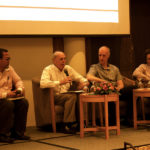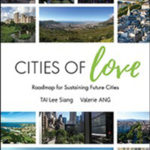As an extra incentive to our efforts towards a sustainable and green future, our section ‘In the limelight’, showcases interviews with personalities to spur you on! Hear what the experts in their specialised fields say! Be enriched by partaking of their well-gained wisdom and be guided by their first-hand experience.
In the limelight
| January 5, 2017








